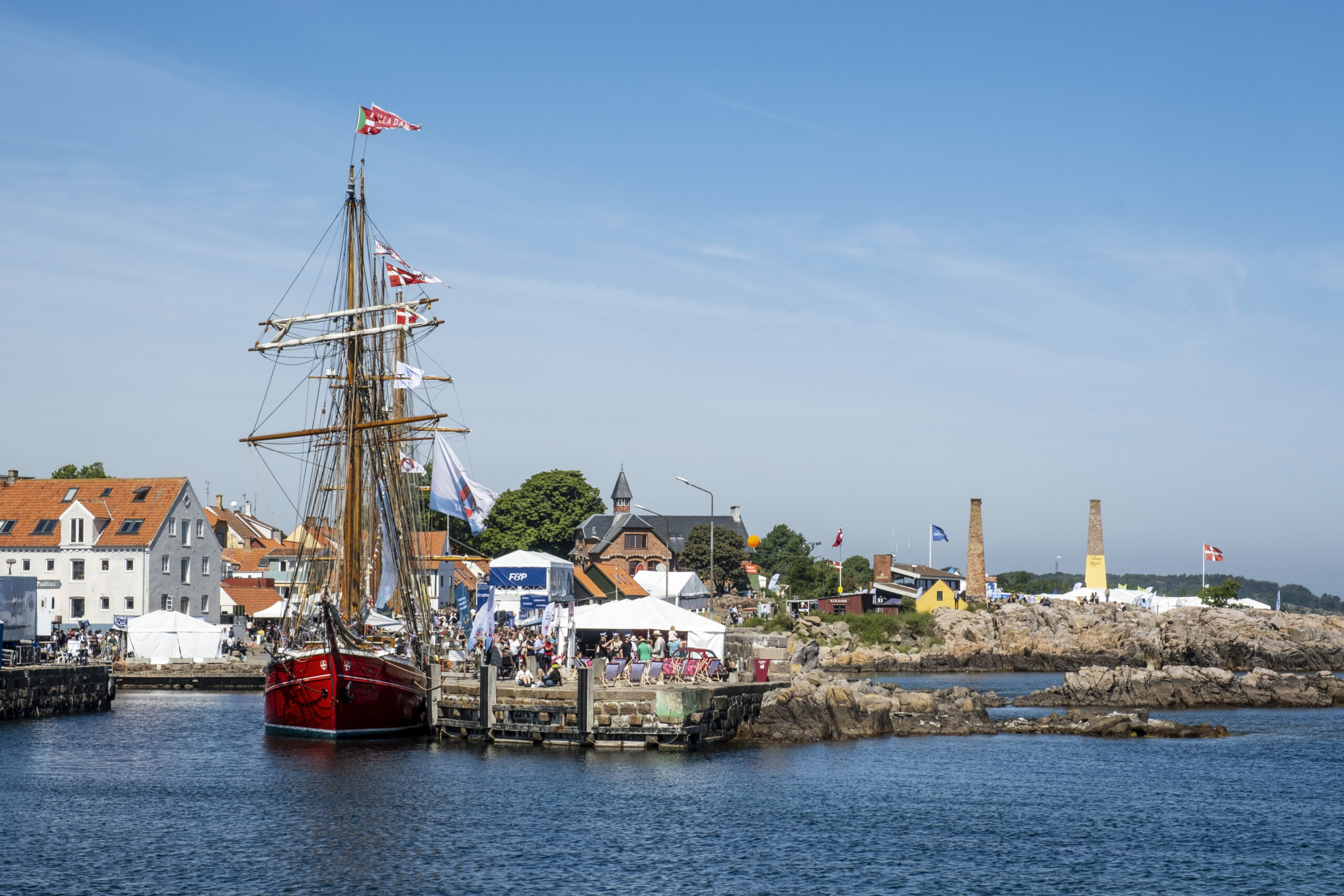Every June, politicians, business leaders, and policy-makers from various organisations across Denmark and the EU convene en masse on the Danish Baltic-Sea island of Bornholm.
They come to attend the political summit Folkemødet – a multi-day conference every June that gathers citizens and decision-makers for debates, presentations, social and cultural events.
It’s ostensibly an exercise in open democracy, but to protect that spirit, police presence is always heavy. And this year, authorities warn that Russian cyber and hybrid attacks on the little Danish island are highly likely.
Bornholm is the most easterly point of Denmark’s territory, located a little beyond the German-Polish land border, and frequently troubled by Russian interference.
“There is a greater expectation of the use of hybrid means this year,” deputy police inspector Allan Bredahl from Bornholm’s Police told DR.
He declined to go into detail, but emphasised that hybrid tools can come in many forms. “I think there are quite a few hybrid tools that we haven’t seen yet,” he said.
Cyber and hybrid warfare researcher at the Danish Defence Academy, Dorthe Bach Nyemann, also cautioned that “it is very likely that something will happen at Folkemødet.”
Physical attacks are less likely, she told DR. Instead, authorities will be monitoring for sabotage attempts such as the arson attack against Ikea in Vilnius in Lithuania, or attempts to disturb the electricity supply or mobile traffic.
The term ‘hybrid attack’ covers sabotage, threats of military force and cyber attacks on infrastructure in which it is difficult to discern the actors.
“Those things are both difficult to predict and to do something about. And the Russians are very creative” Nyemann said.
“Obvious to use the war in Gaza”
Nyemann says that subjects already causing division in Danish society, such as the Israel and Palestine conflict, can be leveraged by Russian actors to sow misinformation, distrust and polarisation between people, politicians and institutions.
“This year it is obvious to use the war in Gaza, but other things can also help to undermine the spirit of Folkemødet,” she says.
External disturbances to political debates and events will therefore be under close scrutiny for the duration of the summit.
But it should not deter attendees, says deputy police inspector Bredahl: “None of that means that we should be afraid to participate in the Folkemødet – neither as a debate participant nor as an audience.”
Bornholm’s disputed history
The shortest air-distance between Bornholm and Russian territory is 363.82 kilometres to the province of Kaliningrad, which is sandwiched between the NATO countries Poland and Lithuania along the Baltic Coast.
The enclave was formerly the capital of East Prussia in the former duchy, but was conquered by the Soviet Union in 1944.
During the Second World War, Bornholm was successively occupied first by Germany, then by the Soviet Union from 9 May 1945 to 5 April 1946 – almost a year after the rest of Denmark had been liberated by the British.
The Danes describe the period as the ‘occupation of Bornholm’, while the Russians call it the ‘liberation of Bornholm’, and refer to 9 May as Victory Day.
This year on 9 May, the Russian ambassador to Denmark Vladimir V. Barbin visited Bornholm to lay a wreath at a Russian grave monument in Allinge Kirkegård.
The monument is frequently vandalised, most recently in April 2024, according to local media TV2 Bornholm.
After laying the wreath, Barbin told reporters that the vandalism is “disgusting and that the person who did it should be held responsible.”
Frequent border violations raise Danish hackles
Bornholm’s waters stretch relatively far east, its maritime boundary with Poland extending beyond the longitude of Kozsalin, towards Gdansk.
Russian yachts frequent the waters, but military vessels occasionally violate them too.
During the 2022 edition of Folkemødet, a Russian corvette – a type of fast, lightweight warship – entered Danish territory twice, crossing into the waters around Christiansø, a small island beside Bornholm.
Denmark’s foreign minister at the time, Jeppe Kofod, described it on X as a “gross and completely unacceptable Russian provocation and bully tactic”.
In a press conference, then-Defence Minister Morten Bødskov emphasised that the move must be read as an expression of “a higher level of tension in the Baltic Sea”.
In the past, Russia has also used aircraft to rattle its sabre during Folkemødet.
In April 2022, a Russian plane violated Danish airspace close to the island, followed by two more in June that year.
Nebulous nuclear threat
That same year, Russian state TV aired a graphic showing calculations of nuclear missile flight paths and impact times in various major European cities, based on a launch location in Kaliningrad.
In 2018, the organisation Federation of American Scientists (FAS) published a report of satellite image analysis from Kaliningrad which suggested that Russia was renovating and expanding a bunker in the enclave.
The bunker bore “all the signs of a typical Russian storage for nuclear weapons”, the head of FAS’s department for information on nuclear weapons told TV2 at the time.
The persistent nuclear threat had raised its head during Folkemødet 2014, when Russian planes flying at low altitude approached Borholm in what was, according to flight pattern analysis by the Defense Intelligence Service (PET), a “simulated missile attack”.
“It’s a way of telling your neighbours: If we wanted to, we could bomb Bornholm. Everyone knows that they never would, but it is a way for Putin to make his mark,” analyst at the Department of Strategy at the Defense Academy Johannes Riber Nordby told Jyllands-Posten at the time.
This year’s Folkemødet takes place on Bornholm from Thursday 13 to Saturday 15 June.












